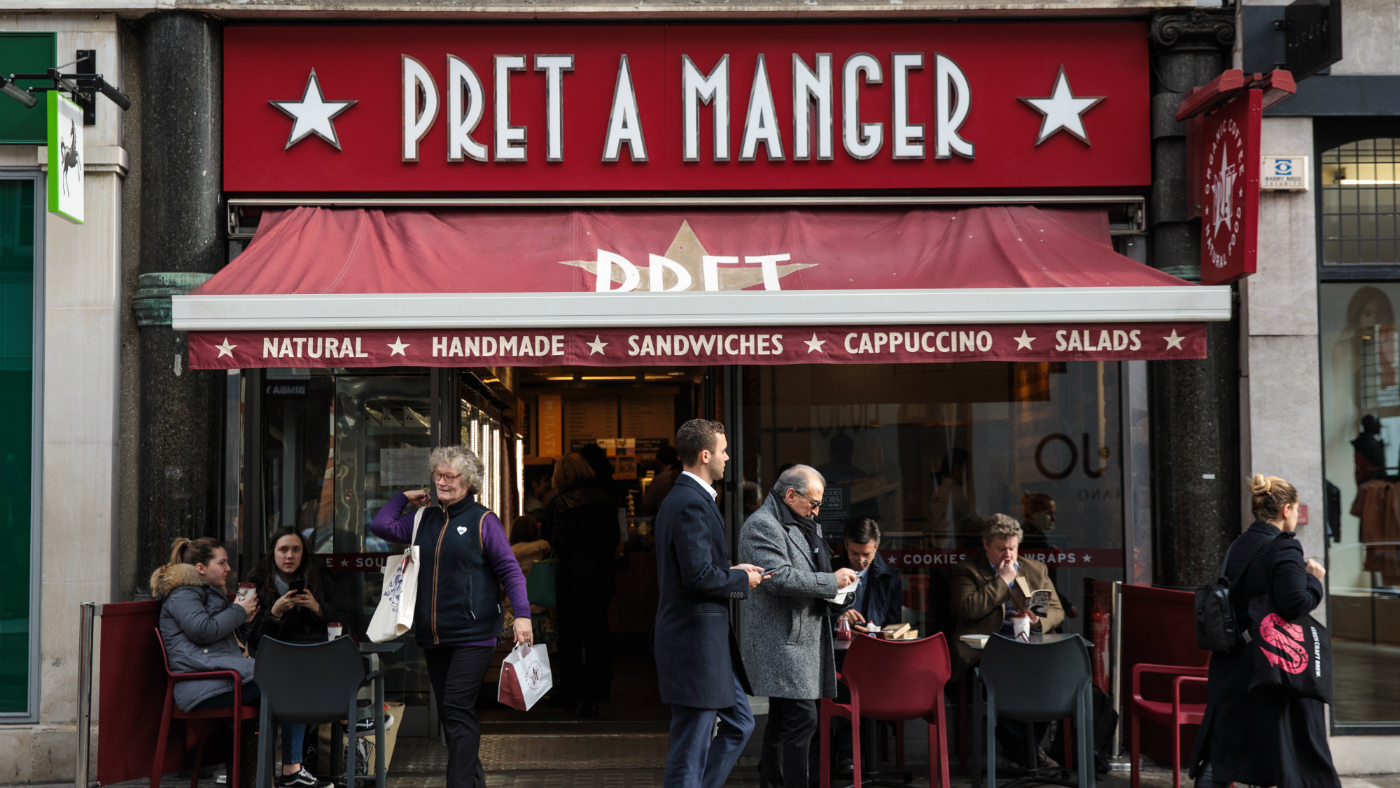Pret A Manger warns of Brexit recruitment crisis
Only one in 50 job applicants comes from a Briton, says sandwich store

A free daily email with the biggest news stories of the day – and the best features from TheWeek.com
You are now subscribed
Your newsletter sign-up was successful
Andrea Wareham, head of human resources at the sandwich chain, told the House of Lords economic affairs committee that only one in 50 applicants for vacancies is British.
She added: "If I had to fill all our vacancies in British-only applicants I would not be able to fill them... because of a lack of applications."
Lord Darling, a former chancellor, asked whether the issue was to do with wages, but Wareham denied higher pay would encourage more applicants, saying the issue was one of perception, says the London Evening Standard.
The Week
Escape your echo chamber. Get the facts behind the news, plus analysis from multiple perspectives.

Sign up for The Week's Free Newsletters
From our morning news briefing to a weekly Good News Newsletter, get the best of The Week delivered directly to your inbox.
From our morning news briefing to a weekly Good News Newsletter, get the best of The Week delivered directly to your inbox.
"I actually don’t think increasing pay would do the trick," she said. "I can only talk for Pret on this, but we do pay well above the national living wage, we do have great benefits and we offer fantastic careers.
"It really is a case of do people want to work in our industry? We are not seen always as a desirable place to work and I think that's the trick."
Pret pays workers in London and other major cities an £8.50 per hour starting rate, which is well above the legal minimum pay rate but below the £9.75 voluntary living wage. It also offers £100 bonuses based on customer satisfaction and says pay progression can be rapid.
The starting package of £16,000 a year can become "really good money ", said Wareham, citing pay, including bonuses, rising to £40,000 to £45,000 "within a few years", says The Guardian.
A free daily email with the biggest news stories of the day – and the best features from TheWeek.com
Pret employs people from 110 nationalities, with 65 per cent of its workforce coming from EU countries other than the UK. Only 20 per cent of its workforce was born here, although that is up from 17 per cent last year.
"We are entirely accepting that the number of EU nationals will go down over time. We would love to increase the number of British nationals and we are excited about this," Wareham said.
"It takes a long time to change hearts and minds. We need to work with education, career services, with parents, to find ways to collaborate."
-
 Political cartoons for February 14
Political cartoons for February 14Cartoons Saturday's political cartoons include a Valentine's grift, Hillary on the hook, and more
-
 Tourangelle-style pork with prunes recipe
Tourangelle-style pork with prunes recipeThe Week Recommends This traditional, rustic dish is a French classic
-
 The Epstein files: glimpses of a deeply disturbing world
The Epstein files: glimpses of a deeply disturbing worldIn the Spotlight Trove of released documents paint a picture of depravity and privilege in which men hold the cards, and women are powerless or peripheral
-
 How corrupt is the UK?
How corrupt is the UK?The Explainer Decline in standards ‘risks becoming a defining feature of our political culture’ as Britain falls to lowest ever score on global index
-
 The high street: Britain’s next political battleground?
The high street: Britain’s next political battleground?In the Spotlight Mass closure of shops and influx of organised crime are fuelling voter anger, and offer an opening for Reform UK
-
 Biggest political break-ups and make-ups of 2025
Biggest political break-ups and make-ups of 2025The Explainer From Trump and Musk to the UK and the EU, Christmas wouldn’t be Christmas without a round-up of the year’s relationship drama
-
 ‘The menu’s other highlights smack of the surreal’
‘The menu’s other highlights smack of the surreal’Instant Opinion Opinion, comment and editorials of the day
-
 Is a Reform-Tory pact becoming more likely?
Is a Reform-Tory pact becoming more likely?Today’s Big Question Nigel Farage’s party is ahead in the polls but still falls well short of a Commons majority, while Conservatives are still losing MPs to Reform
-
 Taking the low road: why the SNP is still standing strong
Taking the low road: why the SNP is still standing strongTalking Point Party is on track for a fifth consecutive victory in May’s Holyrood election, despite controversies and plummeting support
-
 Is Britain turning into ‘Trump’s America’?
Is Britain turning into ‘Trump’s America’?Today’s Big Question Direction of UK politics reflects influence and funding from across the pond
-
 What difference will the 'historic' UK-Germany treaty make?
What difference will the 'historic' UK-Germany treaty make?Today's Big Question Europe's two biggest economies sign first treaty since WWII, underscoring 'triangle alliance' with France amid growing Russian threat and US distance